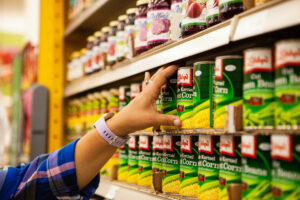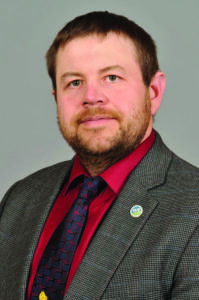 It’s no secret the number of farms in our state is decreasing. That’s why it’s more important than ever the concerns of our state’s farmers are heard. For us to remain a national leader in agriculture, and for our industry to continue to feed and employ our state, policy makers and regulators need to understand how their decisions impact farmers, and in turn, how impacting farmers impacts prices and availability at the grocery store. This includes supporting essential energy projects like the Line 5 relocation in northern Wisconsin.
It’s no secret the number of farms in our state is decreasing. That’s why it’s more important than ever the concerns of our state’s farmers are heard. For us to remain a national leader in agriculture, and for our industry to continue to feed and employ our state, policy makers and regulators need to understand how their decisions impact farmers, and in turn, how impacting farmers impacts prices and availability at the grocery store. This includes supporting essential energy projects like the Line 5 relocation in northern Wisconsin.
Recently released data from the U.S. Department of Agriculture showed a 10 percent decline in Wisconsin farms between 2017 and 2022. At the same time the number of farms is decreasing, average per farm production expenses are increasing – up 47 percent. With fewer farmers, paying more to farm, the policy decisions our state follows in the coming years could make or break a generation of agriculture.
Energy policy is one of those areas that can’t be ignored. While farmers are using more renewable energy sources than ever before, the reality is traditional sources of energy are still the most affordable, reliable and accessible. This includes gas, diesel and, especially in the upper Midwest, propane. And, Line 5 plays a role in the regional supply of each of those forms of energy.
The uses of gas and diesel are obvious, but what many don’t understand is how important propane is to farmers. We use it to dry crops – to prevent spoilage, and for heating not only our human living areas, but also to heat our livestock buildings during our long winters. Additionally, propane is used to heat water, which is critical for cleaning, sanitation and animal health. All told, my farm alone uses about 75,000 gallons of propane per year to produce the pork and crops many of you depend on to feed your families.
Public policy, like modern farming, is complex, and we in the agricultural community understand that. With that said, increasing costs to farmers means increasing costs in grocery stores. While we are always looking for ways to be more efficient, increases in energy prices – which will happen should our propane supply be impacted – would necessarily come out of the wallets of both farmers and Wisconsin families trying to put food on their tables. Unfortunately, our propane supply is currently at risk.
Line 5, which runs from Superior through northern Wisconsin and into the Upper Peninsula of Michigan, is the major regional artery for the feed stock for propane – natural gas liquids. Not to be confused with natural gas, natural gas liquids are supplied by Line 5 to propane refineries here in Wisconsin, the UP and just over the border in Sarnia, Canada. All three of these refineries contribute to the regional propane supply farmers depend on.
But Line 5 is at risk. While it’s operated safely for decades, a northern Wisconsin tribe has sued to have the pipeline shut down where it crosses their reservation – despite agreeing to host the line in the past. Last summer a federal judge gave the pipeline owner, Enbridge, three years to complete a proposed relocation around the tribe’s reservation. Having filed state permits back in 2020, Enbridge continues to wait for the Wisconsin Department of Natural Resources to approve the permits to start the relocation. The urgency became even more clear when major propane supplier Plains Midstream warned if Line 5 shuts down they would close their three propane refineries in our region, creating a supply shortage not seen since the propane state of emergency in the winter of 2013-14.
Putting it bluntly, our state’s farmers – and those buying our products on grocery store shelves – cannot afford a situation where Line 5 ceases to operate and energy prices increase. Wisconsin farmers need the energy supplied by Line 5. The agricultural community looks forward to the Wisconsin DNR issuing the needed permits soon for Line 5 to continue operations and for Wisconsin farmers to continue to feed and nourish the residents of our state.
AV Roth is a fifth-generation hog and crop farmer from Crawford County, Wisconsin. He is the president of the Crawford County Farm Bureau and a former president of the National Pork Producers Council.



Sue Luedtke says
So what does Evers have to say about this ???